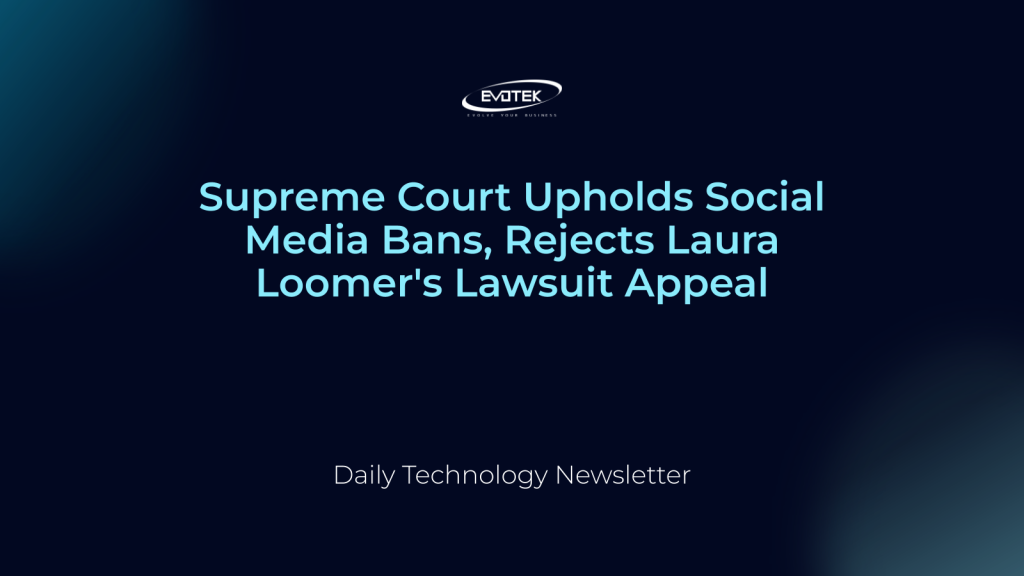WASHINGTON – The Supreme Court has declined to intervene in conservative activist Laura Loomer’s ongoing legal battle against social media giants Facebook and X (formerly Twitter). This decision effectively upholds lower court rulings that dismissed her claims of a conspiracy to ban her from these platforms.
Loomer, known as a vocal conservative provocateur and influential figure linked to former President Donald Trump, has often been at the center of controversy due to her conspiracy theories and inflammatory statements.
Background of the Bans
Her ban from Twitter initially occurred in 2018, citing “hateful” conduct. The following year, Facebook also removed Loomer and other controversial public figures, labeling them “dangerous individuals” who promoted violence or hate.
However, her Twitter account saw reinstatement in 2022 after billionaire entrepreneur and Trump ally Elon Musk acquired the platform, subsequently rebranding it as X.
The Failed Legal Challenge
The Supreme Court’s decision on October 6 marks the fourth time Loomer’s attempts to sue these social media companies have been unsuccessful. Her appeal alleged that Facebook and X conspired with advertisers to prevent her from using their services. She contended that these bans severely hampered her congressional campaigns in both the 2020 and 2022 election cycles.
Attorneys representing Loomer emphasized the critical role of social media in modern political campaigns, particularly during the COVID-19 pandemic, which restricted traditional campaigning methods like door-to-door canvassing and public gatherings. They argued that her exclusion from these platforms effectively “doomed her campaigns.”
Court Dismissals Explained
The lawsuit, which invoked the Racketeer Influenced and Corrupt Organizations (RICO) Act, was initially dismissed by a federal judge in California. The San Francisco-based 9th U.S. Circuit Court of Appeals subsequently affirmed this dismissal.
The appeals court concluded that Loomer failed to present a plausible argument that the companies violated RICO. The court stated, “The operative complaint simply alleges that there was a RICO enterprise because the Defendants had the ‘common goals of making money, acquiring influence over other enterprises and entities, and other pecuniary and non-pecuniary interests.'” They further elaborated that this was insufficient to establish a RICO violation, affirming that “the district court properly dismissed the amended complaint and denied leave to amend.”
With the Supreme Court’s rejection of her appeal, Loomer’s legal avenues concerning these social media bans appear to have reached an end.

 日本語
日本語 한국어
한국어 Tiếng Việt
Tiếng Việt 简体中文
简体中文